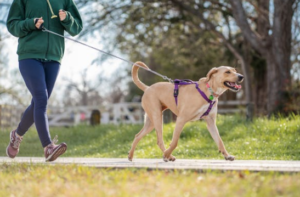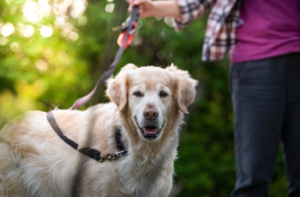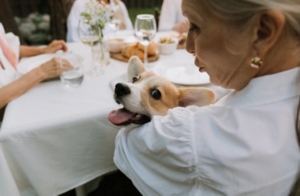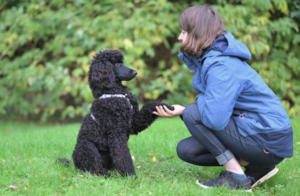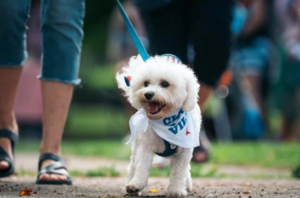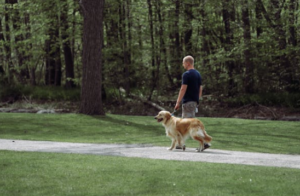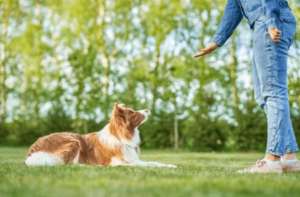
Many Boise dog owners describe their dogs as “stubborn,” but this behavior often stems from confusion or lack of motivation. In this post, we’ll break down Boise stubborn dog behavior, what causes it, and how positive, local training can help you see real results.
What “Boise Stubborn Dog Behavior” Really Means
Boise dog owners often say, “My dog just won’t listen.” At first glance, it feels like defiance, but in reality, it usually isn’t.
Boise stubborn dog behavior often results from:
-
Confusion about your expectations
-
Low motivation to engage
-
Overstimulation or distractions
-
Negative past experiences
-
Anxiety or stress
Instead of trying to frustrate you, dogs simply react based on what they’ve learned. In other words, they respond to their environment and past outcomes.
Why Punishment Fails in Stubborn Dog Training
Some owners try punishment to stop unwanted behavior. However, this approach often damages trust and increases confusion.
To get better results, Boise dog trainers recommend:
-
Positive reinforcement to reward good behavior
-
Clear, consistent commands that reduce guesswork
-
Short, engaging sessions that maintain attention
-
High-value motivators your dog truly enjoys (treats, toys, praise)
If your dog doesn’t respond as expected, reevaluate the training—not your dog’s personality. As a result, you’ll make faster progress.
Confused or Defiant? Understanding Stubborn Dog Behavior in Boise
Often, dogs labeled as stubborn feel unsure or overwhelmed. For example, they may:
-
Misunderstand your commands
-
Focus on more exciting distractions
-
Feel discouraged after repeated failures
Consequently, inconsistent rules or unclear guidance confuse your dog. Over time, they may stop trying, assuming their efforts won’t succeed.
Although it may look like refusal, shut-down behavior often reflects stress or learned helplessness. Therefore, clarity and encouragement matter more than ever.
How to Re-Motivate a Stubborn or Shut-Down Dog
Here’s how you can re-engage a dog that seems unmotivated or resistant:
-
First, identify their favorite reward: food, praise, or toys
-
Next, break tasks into smaller, winnable steps
-
Then, keep training light and fun
-
Finally, celebrate every success to build confidence
Our Board & Train program follows these principles. As a result, we help “stubborn” dogs become focused and responsive.
Personalized Solutions for Boise Stubborn Dog Training
Each dog learns differently. Because of this, a cookie-cutter method rarely works.
At All Dogs Unleashed Boise, we:
-
Evaluate your dog’s history, breed, and temperament
-
Test motivation levels and emotional triggers
-
Design a personalized training strategy
Therefore, we create a plan that fits your dog—not just any dog. This approach increases results and improves your dog’s overall learning experience.
When to Seek Professional Help
Some dogs need expert guidance to succeed. For instance, if your dog:
-
Ignores commands consistently
-
Only responds when you hold a treat
-
Struggles to focus in new environments
-
Shuts down during training sessions
…it’s time to get help from a professional.
Our Board & Train and Puppy Training programs offer structure, support, and real results.
In addition, if you want to start fresh this year, check out these AKC dog training resolutions for extra inspiration.
Final Thought for Boise Dog Owners
No dog is truly untrainable. With the right methods and a positive mindset, your “stubborn” pup can thrive.
Ready to see real results? Board & Train and get your dog on the path to success.
Still have questions? Contact Us today to speak with a local trainer.
FAQ
What causes stubborn dog behavior in Boise dogs?
Most “stubborn” dogs are confused, unmotivated, or overwhelmed—not defiant.
How do I get my stubborn dog to listen?
Use clear commands, consistent structure, and rewards that actually motivate your dog.
Is my dog too old to train?
No! Dogs of all ages can learn when the training is tailored to their needs.
Should I punish my dog for not listening?
No—positive reinforcement is far more effective and helps build trust.
What’s the best training option for a stubborn dog in Boise?
Our Board & Train program offers structured, professional help with proven results.




